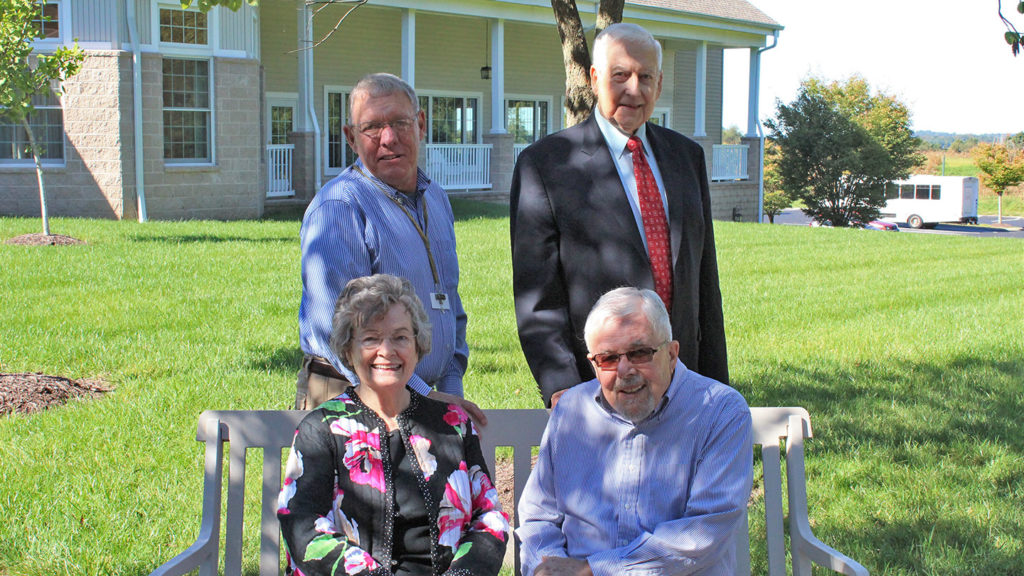
As more evidence pours in confirming that rates of depression and loneliness increased among older adults during the pandemic, researchers are calling for more coordinated and effective interventions.
Investigators from Simon Fraser University’s Gerontology Research Center reported a 67% increase in loneliness among women aged 65 to 74 during the pandemic and a rise in depression from a pre-pandemic level of 19% to 23% in 2020. Their data also revealed that loneliness increased by 45% among men aged 65 to 74 during the pandemic, with a rise in depression from 12% to 14%.
Respondents in the 75-to-84 age group reported a 37% increase in loneliness and a 33% increase in depression during the pandemic.
Low-income adults living in assisted living or social housing settings, as well as older adults living alone, were more vulnerable to loneliness and social isolation, investigators said. Other high-risk groups included those living with dementia or living in rural areas, family caregivers, members of indigenous or ethnic minority groups, older adult immigrants, and people identifying as LGBTQ2 individuals,.
Survey data were collected from participants in the Canadian Longitudinal Study on Aging, a 20-year long-term study following 50,000 adults aged 45 to 85.
Researchers said the sustainability of successful interventions is important, because many interventions are supported by short-term or emergency funding. Governments can play a role by providing funding, supporting coordinated responses and knowledge-sharing, and policymaking. Non-governmental organizations, they said, can play a role in delivering services to isolated older adults.
“The lessons learned during the COVID-19 pandemic should be applied to the eventual post-pandemic circumstances, including adapting and continuing to fund successful and promising interventions; addressing causes of marginalization and supporting vulnerable populations; encouraging intergenerational connections; supporting partnership building; and ensuring reform to LTC to support the social and well-being needs of residents,” the researchers concluded.
Hope and healing
All too familiar with the effects of the pandemic on daily life, four Carroll Lutheran Village residents recently relaunched the Maryland-based continuing care retirement community’s Stephen Ministry Program after it had been paused during the pandemic for safety reasons.
The program helps fellow residents with depression, loneliness, loss of family or faith, health, end-of-life decisions and other issues. Laypeople are trained to provide one-to-one Christian care for those experiencing grief, illness, hospitalization, life transitions and other life challenges.
Bob Nicholl, class administrator, provides oversight of the program with fellow residents Connie Kidder and Jay King. Carroll Lutheran Village Association Chaplain Charles Marshall and Spiritual Life Committee Chair James Boesler round out the leadership team. Each team member received 50 hours of specialized training before working with residents.
The team intends to expand the program to include outreach to residents who may need support but don’t require the full program. Some residents, they said, may benefit from a simple conversation with a minister rather than meeting for multiple sessions.
Reading to reduce loneliness
Elsewhere, a Connecticut-based organization is working to keep older adults socialized and engaged by making books accessible to those who have trouble reading. Reading2Connect produces reading materials that are age- and dementia-friendly by adapting fiction and nonfiction literature for older adults living in long-term care facilities.
The books are designed to promote active engagement, a desire to learn and a renewed interest in the world for older adults. Caregivers can use the books to implement a Montessori-based approach to care, providing closer connections with residents, according to the founders.
The Reading2Connect program includes books, staff training and supporting materials. The books span an array of cultural and religious topics, are available in multiple languages, and are offered as print on washable paper, as e-books and as audiobooks.
Co-creator and President Susan Ostrowski recently discussed the program at the On Aging 2022 Conference in New Orleans, hosted by the American Society on Aging.


